In March, the Elefant Traks managing director, Tim Levinson, took to Instagram with an announcement: after 26 years, the independent hip-hop and electronic music label that broke beloved Australian artists including the Herd, Hermitude and Horrorshow was “calling it a day”. In the video post, Levinson, also known as rapper and producer Urthboy, takes a brief tour around the label’s former homes in Sydney’s inner west, including a creative district in Marrickville now razed by developers. In the comments, a who’s who of Australian hip-hop – B Wise, Maya Jupiter, Nooky and Dobby – extolled the label alongside hundreds of reverent comments from fans and fellow musos.
Speaking with Guardian Australia over the phone in May, Levinson says the decision was a long time in the making. He now lives in Newcastle, a move that has “coincided with the last few years of the music industry, which has thrown so many curveballs”. He’s been “waking up at three or four every morning”, he says, stressing about the upcoming run of Elefant Traks finale shows happening across Australia.
The way Levinson tells it, Elefant Traks became another casualty of an increasingly ruthless music landscape. “You can look at streaming numbers and ticket sales and see things aren’t working like they once were. And [it’s] the unforgiving environment that new and emerging artists are walking out into.”
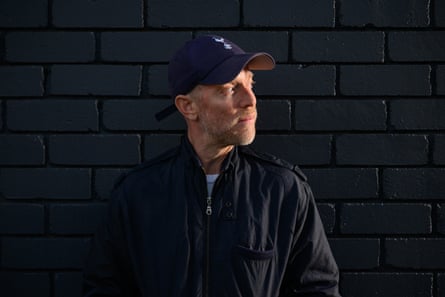
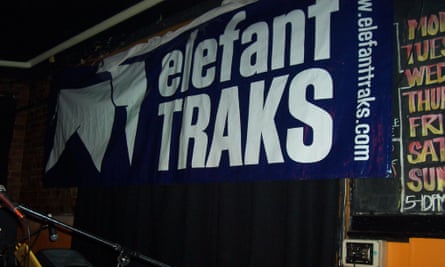
Levinson says he and his tight-knit team of four “could see where things were going” two years ago, when they were forced out of their longtime headquarters on Marrickville’s Faversham Street. Levinson describes their final move to a new office a few blocks away as “putting all our chips down” on a business struggling to stay afloat. “Our industry has always been gamblers and thieves and crooks, and wholesome, good-hearted people trying to make a difference,” he says. “We were not affiliated with any majors and have never been a subsidiary of anyone. When things dry up, we can’t just kind of call on daddy or some sort of [venture capitalist] to step in. It’s a lot more real.”
Founded in 1998 by the musician and activist Kenny Sabir, Elefant Traks always stood on its own. With hip-hop and electronic music at its core, the label’s slogan of “championing the underdog” befit its multicultural roster and strong political convictions. Elefant Traks hit its stride in the early 2000s with the Herd, a sprawling hip-hop collective that included Sabir and Levinson, and beat-making duo Hermitude. Over the years, the label’s roster grew to include the likes of Horrorshow, Joelistics, and Indigenous hip-hop acts Jimblah and the Last Kinection, then later Sikh MC L-Fresh The Lion, Nigerian-Australian rapper B Wise and queer Zimbabwe-born artist Anesu, who signed with the label in 2023.

Diversity wasn’t an afterthought; it was a direct response to an overwhelmingly homogeneous industry: “I remember our last signing of a white male rapper,” says Levinson, “and it certainly wasn’t in the last 15 years.”
-
Sign up for the fun stuff with our rundown of must-reads, pop culture and tips for the weekend, every Saturday morning
Sabir remembers the “activist roots” of Elefant Traks, citing early gigs at Reclaim the Streets rallies. “We were on the protest line with a mic and a little amplifier, rapping and playing beats,” he says, dialling in from his current job as an exec at livestock management startup AgriWebb. The “completely DIY” operation, run out of makeshift spaces in Surry Hills, Redfern and Enmore, included working bees to burn CDs and distribute them to record stores. “We saw this music industry and we didn’t fit in,” Sabir says. “So we just … did it our way.”
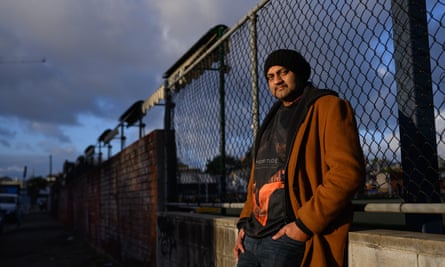
Sabir remembers a moment early in the Herd’s run “when someone said to us, ‘Oh, you guys look like the United Colors of Benetton.’” While the band had a “white front” in Ozi Batla and Urthboy, Sabir adds, “when we’d tour, people would see our diverse makeup. We’d be in country towns and me and Kaho [Cheung, AKA Unkle Ho] would get some racist remarks, and then later on would see those kids in the crowd at the gig.”
Their diversity emboldened Elefant Traks to buck the aggressively white embrace of Australian hip-hop against the backdrop of the 2005 Cronulla riots. “There was so much racism and nationalism in Australia,” Levinson says. “When the local hip-hop scene started really building big audiences, a lot of its appeal was to kids waving flags and making people kiss them at the Big Day Out. Bigger hip-hop labels were using ‘Aussie, Aussie, Aussie, oi, oi, oi’ in their shit – it was cringe. We felt like our role was to be fucking counter to that.” The industry at large, Levinson recalls, “took great glee in looking at the hip-hop community and saying, ‘Wow, there’s problems there.’ It gave them all an excuse to not have any self-reflection about how undeniably white and racist the rest of the Australian music industry was.”
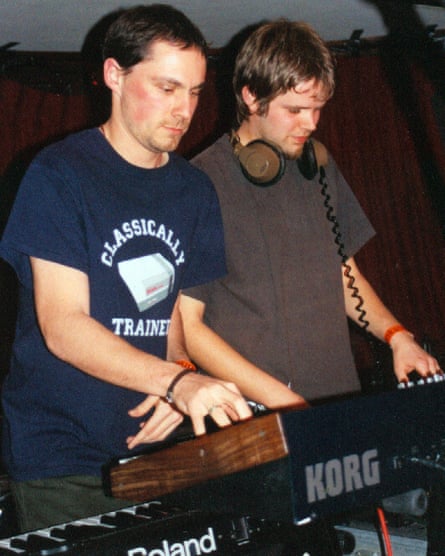
As it happened, the label’s biggest breakout success was not a hip-hop act, but electronic duo Hermitude. After years of steady releases on Elefant Traks, Flume’s sleek 2012 remix of HyperParadise brought the duo to the attention of Nettwerk Music Group’s Rachel Cragg, who pushed Hermitude’s 2015 single The Buzz to a worldwide dance fanbase. “Elefant Traks was the first time that I’d worked with an artist-run label,” Cragg says over Zoom from her home in Canada. “As an artist himself, Tim was able to give a kind of creative feedback that most [industry] people can’t.”
Sabir says the duo, who he affectionately refers to as Hermi, tell a “beautiful story” of the synergy between artist and independent label. “What major label is going to support an act across that many records, before a big return?” he muses. Cragg agrees. “It’s the classic 10-year overnight success,” she says. “It takes a certain type of label and community to stick with artists over the long term.”
At a time when acts like Onefour, 1300 and Genesis Owusu are redefining Australian hip-hop on the world stage, Levinson feels certain “there’s more talent in 2024 than there’s ever been, by a long way”. That said, he’s struggling with “the bigger, more profound question” of how to connect young people with the life-altering power of music when the traditional mechanisms keep failing.
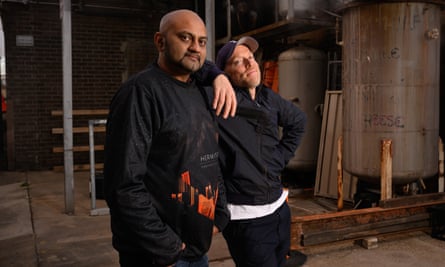
As a scrappy young artist, Levinson told journalists he didn’t want to be “another old white guy running the shop” in 20 years. As he considers the legacy and ultimate end of Elefant Traks, that conviction hasn’t wavered. “Culture has to remain open to the most exciting voices and ideas,” he says. “Of course, I would love for our reputation to create all sorts of foundations for new artists to thrive on. But that’s not replenishing culture; that’s just becoming stale and wanting things to become easy. Fuck that.”
-
Elefant Traks are hosting a series of finale shows across Australia, starting at the Opera House as part of Vivid Live on 26 May, then Brisbane on 8 June and Melbourne on 15 June
Source: theguardian.com


